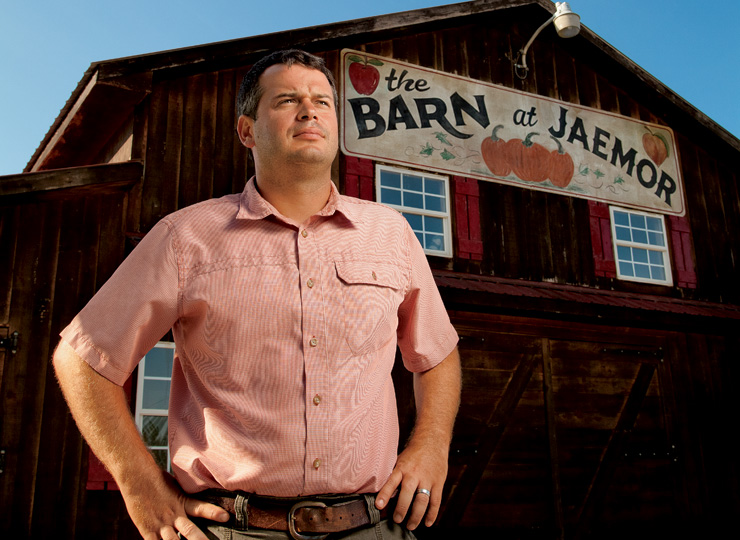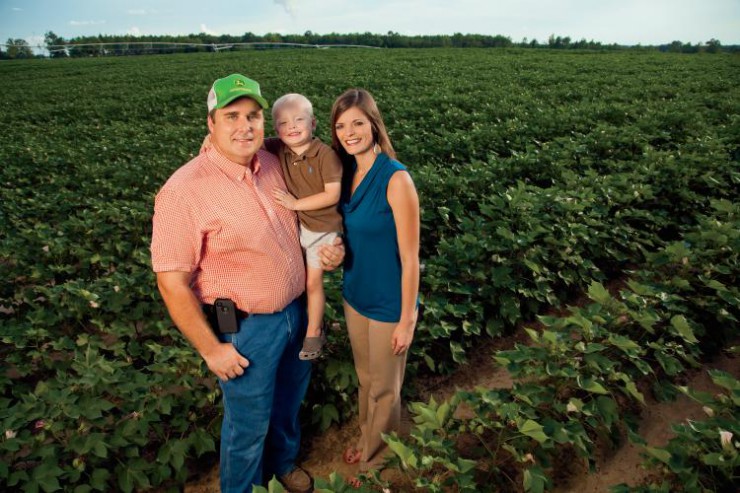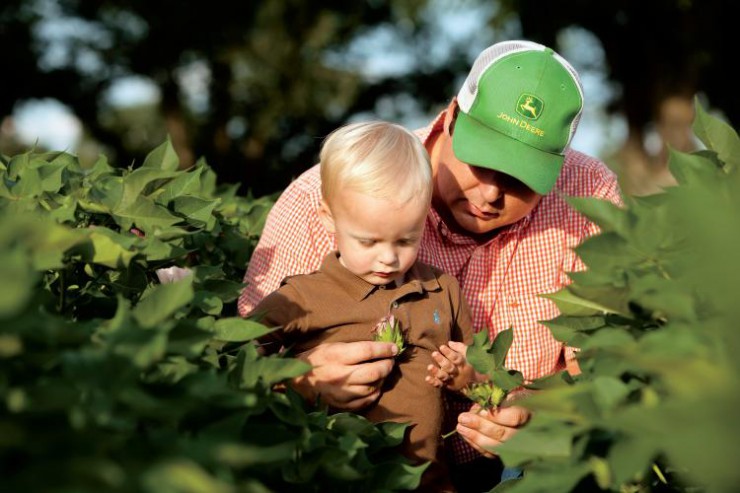Home > Georgia > Georgia Technology > The Next Generation of Farmers Cultivates Marketing and Technology
The Next Generation of Farmers Cultivates Marketing and Technology
Agriculture is green and growing in Georgia, contributing $65 billion annually to the state’s $787 billion economy. It’s truly a growing business, with one in seven Georgians working in agriculture, forestry or related fields.

With an eye on the future, young farmers are taking advantage of technology and education to run efficient, ecologically friendly and profitable farms.
The Echols family knows a thing or two about farming, leading Jaemor Farms since 1912. Currently three generations work on the farm, with a fourth waiting in the wings. Sixth-generation farmer Drew Echols, 33, manages the farm. He’s seen many changes to his family farming business, which has the largest roadside market in the country.
“My granddad was laughed at for saying he wanted to be a farmer,” Echols says. “People looked down on farmers 50 years ago. Now it’s almost a novelty profession. People have to eat, and farmers have to be the movers and shakers in food production.”
Cultivating Contacts
Echols believes it’s important to diversify crops in order to diversify the kind of customers who visit the market, whether to purchase or to experience farming as agritourists.
With more than 20 varieties of peaches, eight varieties of apples, a corn maze, farm tours and a market stocked with homemade breads, jams, jellies, pies and boiled peanuts, Jaemor Farms sees nearly a million agritourism visitors each year.
“We used to see mostly retirees on their way to the Smokey Mountains, going leaf- looking,” Echols says. “Now we have people making the trip up to visit our farm. We have over 7,000 fans on Facebook.”

With the locally grown movement sweeping the nation, Jaemor Farms sees increased demand by 25 to 30 percent each year, Echols says. Jaemor Farms has even branched out to wholesale markets, including restaurants and school lunch programs.
“It takes different personalities when dealing in restaurants compared to soccer moms coming in to pick up a half a dozen peaches,” Echols says. “We try to stay personal with both, but when we’re dealing with large sales, it feels more like business.”
To keep up with increasing demand, Echols says it’s important for people in the industry to be knowledgeable in marketing and accounting as well as agricultural law and ever-changing regulations.

An Appreciation for Education
Chris Hopkins, first-generation Toombs County farmer and recent recipient of the annual Governor’s Environmental Stewardship Award, sees many opportunities for young people in the agriculture industry. While earning a master’s degree in plant protection and pest management from the University of Georgia College of Agricultural and Environmental Sciences, Hopkins gained insight in the day-to-day issues a farmer faces when dealing with crops, including the ongoing challenges of weeds, disease and insects.
Being able to effectively combat those battles either mechanically, through the development of new spray products, or other growing techniques is a bright spot for our economy, says Hopkins.
“Naturally, as technology advances, we get into more guidance-related farming. Everything from fundamental agronomics, to pest managements, to mechanical related farming is needed. Especially in rural America.”
Seven years ago Hopkins and his wife, Marilynn, started their farm from scratch on 50 acres of rented land. Since then, the Hopkinses have been protecting the future of their now-600 acres of cotton, peanuts, corn, timber, watermelons and pecans through land and soil conservation efforts. Specialized training has taught them to recognize highly erodible areas and how to manage those areas differently, maximizing irrigation efficiency through site-specific waterways and terraces, and adopting conservative tillage practices.

In order for agriculture to support and sustain our population, Hopkins says it is crucial to stay ahead of the curve and become more efficient in production practices.
“I believe agriculture is going to be one of the key catalysts to our country and our planet. Farmers of the future are going to have to have a good conservationist or environmentalist working with them.”
Beyond opportunities in technology development and environmental conservation, Hopkins also sees a need for people with degrees in business, agribusiness, economics or some other form of applied science.
“A farmer has to wear so many hats. He has to have somebody walking by his side to help make general decisions with the understanding of business or economics. A farmer may have great worth ethics, but he may need someone to help him manage his money. Some formal education is needed to be successful in today’s agricultural business.”



